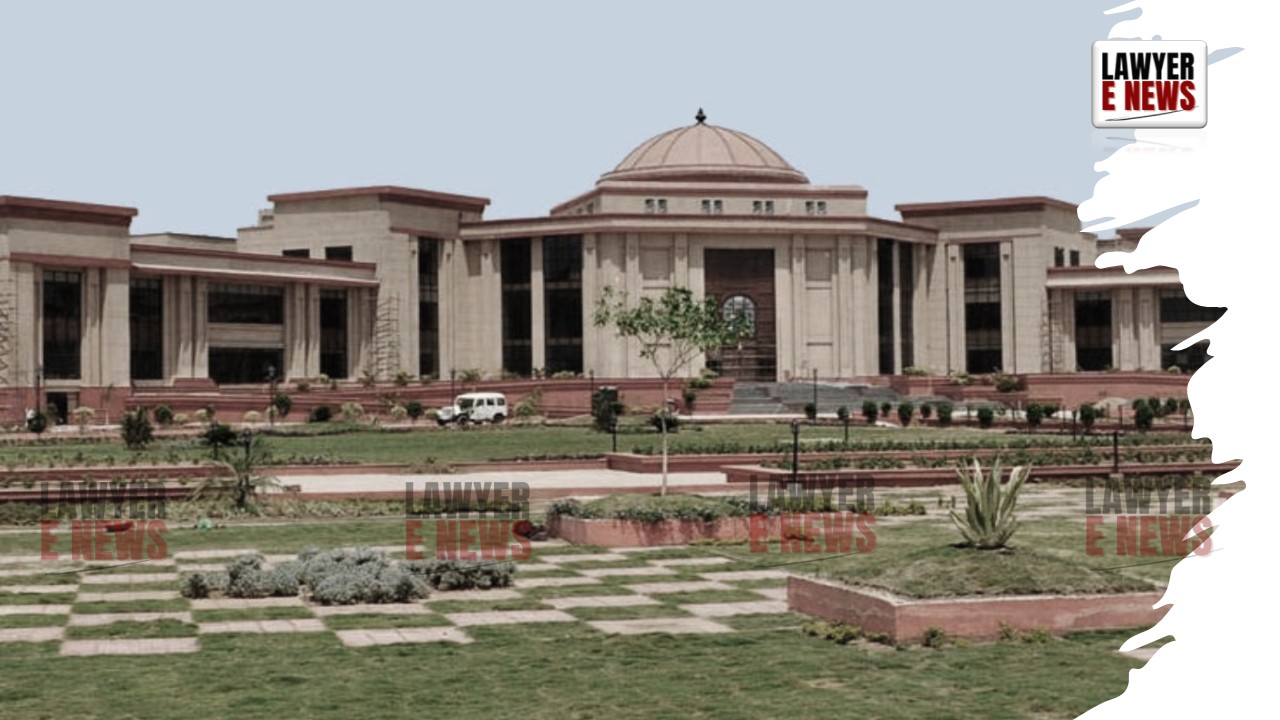-
by Admin
17 February 2026 2:34 PM



“If any piece of evidence remains unrebutted, it may reflect an adverse effect on the rights and interests of a party” - Chhattisgarh High Court concerning the scope of Order 18 Rule 17 read with Section 151 CPC, especially when new documents are exhibited after a witness’s examination.
While setting aside the trial court’s order that denied an application for re-cross-examination, Justice Rakesh Mohan Pandey ruled that when a party seeks to rebut newly exhibited documents, the right to cross-examine becomes critical and cannot be denied merely on technicalities.
The dispute arose in a partition suit filed by Dr. Smt. Pratima Raman (plaintiff/respondent no.1), claiming 1/7th share in ancestral property. The plaintiff's evidence was closed on 21.04.2023, and the suit proceeded to the defendants’ evidence.
However, on 01.05.2023, the plaintiff filed an application under Order 7 Rule 14(3) CPC and produced documents that were admitted and later exhibited as Exhibits P/23 and P/24 during the cross-examination of Prashant Singh Gupta, the son of defendant no.1.
Subsequently, Ajay Singh Gupta (defendant no.2) moved an application under Order 18 Rule 17 read with Section 151 CPC seeking to re-cross-examine the plaintiff on the newly introduced documents. The trial court rejected this application on 10.05.2023, prompting the present revision petition.
“Statutory Right to Cross-Examination Cannot Be Compromised”
Justice Pandey emphasized that cross-examination is a right granted by Sections 137 and 138 of the Evidence Act, and cannot be curtailed merely because a witness has already been examined earlier. The Court observed: “If any piece of evidence remains unrebutted, it may reflect an adverse effect on the rights and interests of a party.”
He held that the plaintiff exhibited two documents after her examination was complete, and these were confronted to a different witness. Hence, the petitioner was entitled to re-cross-examine the plaintiff.
“Right Arose When the Documents Were Admitted and Exhibited”
The Court noted that although an earlier application for re-cross-examination was dismissed, that order was passed before the documents were admitted in evidence. The second application arose only after the documents were formally exhibited. The Court clarified: “The first application was rejected on the ground that the documents... had not been exhibited. The second application was moved when those documents were exhibited... Therefore, exigency arose for the defendant to move such an application.”
Thus, principle of res judicata did not apply, and the application was found maintainable.
“Order 18 Rule 17 CPC and Section 151 CPC are Discretionary Tools to Serve Justice”
The Court extensively relied on the landmark ruling in K.K. Velusamy v. N. Palanisamy (2011) 11 SCC 275, reiterating that: “Order 18 Rule 17 is not intended to be used routinely... but where the application is bona fide and additional evidence will assist the Court... the discretion may be exercised.”
The Court further reiterated that the inherent power under Section 151 CPC exists “to undo what is wrong” and secure the ends of justice, particularly where the Code is silent on the specific situation.
Plaintiff’s Action in Exhibiting Documents During Opponent’s Evidence Gave Rise to Right of Rebuttal
The Court criticized the plaintiff’s timing in producing and exhibiting documents during cross-examination of the defendant’s witness, holding that this action “created the very need for re-cross-examination.”
The Court observed: “Though there was no need to re-cross-examine the plaintiff as she was sufficiently cross-examined... but when documents were produced... the petitioner filed the second application to secure his right and not to fill up any lacuna.”
The Court also clarified that the fact that the plaintiff was not the author or executant of the documents did not matter, as the right of rebuttal still arose.
Conclusion: Trial Court's Denial Set Aside – Application for Re-Cross-Examination Allowed
Justice Rakesh Mohan Pandey concluded that denying the petitioner an opportunity to re-cross-examine the plaintiff on newly introduced documents would adversely affect his valuable rights. The trial court’s reasoning was found to be legally unsustainable.
“The opportunity to re-cross-examine the plaintiff would not cause prejudice to the plaintiff but denial may adversely affect his valuable rights.”
Accordingly, the High Court set aside the trial court’s order dated 10.05.2023 and allowed the application under Order 18 Rule 17 read with Section 151 CPC.
Date of Decision: 22 September 2023
